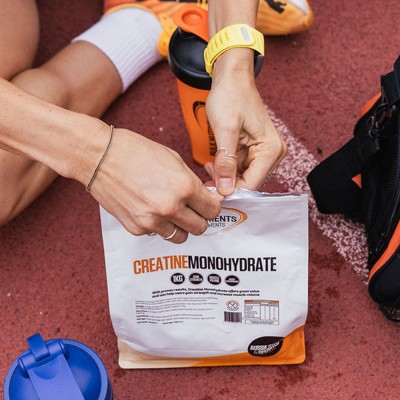Understanding Your Metabolism

What does your metabolism do?
Metabolism is the process by which your body converts what you eat and drink into energy. During this biochemical process, calories are combined with oxygen to release the energy your body needs to function.
The “energy equation” is a very simple formula; burn more calories than you consume and you will lose weight.
Women store more fat below the skin whereas men store more fat in the belly region. Women also have more fat on their lower body, particularly in the hip and thigh region. This body fat, however, is good for women’s health.
There are two sides to metabolism that are closely interlinked. One side is the catabolic process which breaks down substances and releases energy from them The other side is the anabolic process that takes in energy and uses it to build substances and make the body function. During this energy exchange, some energy escapes in the form of heat. The body’s metabolic rate shows how fast it produces heat and therefore how quickly it is burning fuel.

Basel Metabolic Rate (BMR) is the number of calories your body burns while at rest to support your body’s daily functions. During digestion, food is broken down into glucose, fatty acids, glycerol and amino acids. These simple nutrients are the raw materials that come from your metabolism.
After the liver has processed nutrients, they are then carried to the bloodstream to be used by the body’s cells or stored until required. Metabolism varies from person to person, however, most people burn between 1800 and 2800 calories per day.
How do metabolic rates vary?
Here is a basic breakdown of how the energy (calories) from what you eat typically gets used:
- 60-70 per cent in vital functions
- 15-30 per cent in physical activity
- 10-15 per cent in your digestion
So the majority of the energy you consume is burned up just in your bodily functions. But you can increase your BMR by exercising more and consuming a healthy diet.
While metabolism is linked to weight, a slow metabolism is not always the cause of excess weight gain. Although it influences your body’s energy requirements, it’s your food and beverage intake and your level of physical activity that determines how much you weigh.
It is a common belief that a slim person has a high metabolism, and an overweight person has a slow metabolism, but this is rarely the case. Most overweight people do not have an underlying condition caused by a slow metabolic rate, their weight gain is mainly due to an energy imbalance.
While it is true that some people seem to be able to lose more weight than others; everyone will lose weight when they burn more calories than they consume.
To lose weight, you need to create an energy deficiency by eating fewer calories or increasing the number of calories you burn through exercise. Therefore, while you don’t have much control over the speed of your metabolism, you can control the number of calories you burn through physical activity.
Key facts you should know about your metabolism
- Eating more protein can increase your metabolism
- Men tend to have a higher metabolism
- Menopause affects metabolism
- Many health issues can affect your metabolism
- Vitamin D deficiency has been suggested to slow your metabolism
- Genetics can influence your metabolism, but lifestyle and dietary choices are the major factors
- Low calorie diets can slow down your metabolism as your body tries to conserve energy
- Your metabolism slows down slightly with age
- It takes only thirty minutes of being stationary for it to start affecting your metabolic rate
- Lack of sleep can slow down your metabolism
- At rest women burn more glucose (carbohydrates) than men and less fat
- Stress affects women’s metabolism and reduces fat loss
- Fasting and calorie restriction tend to be detrimental to a woman’s metabolism compared with men
To make sure your metabolism is running efficiently you need to make sure you are giving your body the adequate fuel it needs to produce energy. Each of the metabolic processes in the body requires fuel to function.

Factors that can slow your metabolism
There are a range of factors that can slow down your metabolism. These are:
- Not eating enough
- Skipping meals
- Not eating enough protein
- Dehydration can make your metabolism slower
- Low carbohydrate diets
- Simple carbohydrates can slow down your metabolism
- Lack of sleep can slow down your metabolism
- Vitamin D deficiency
- Calcium deficiency
- Consuming too much alcohol
- Low iron levels
- Consuming too much salt
Factors that can increase your metabolism
There are also an array of natural ways to speed up your metabolism. Try some of these:
- Exercise regularly
- Eat healthy low calorie snacks in between meals
- Eat more protein if intake is low
- Stay hydrated
- Include strength training to build lean muscle
- Schedule in regular meals at the same time of day
- Make sure you get enough sleep
Metabolism boosting products
Products that claim to speed up your metabolism often have undesirable and dangerous side effects. Therefore, you need to view these products with caution.
If you are still gaining weight with a healthy diet and regular exercise, it is advisable to get your thyroid checked. The thyroid releases hormones required for efficient metabolism and when it slows down, so too can your metabolism.
Instead of buying artificial products aimed at boosting metabolism, why not try some natural foods that have been proven to have a positive effect on metabolic rate. Some of these include:
- Water
- Egg whites
- Lean meat
- Chilli peppers
- Coffee
- Green tea
- Milk
- Whole grains
- Nuts and seeds
- Fish
- Lentils
- Greek yoghurt
- Avocado
- Blueberries
The basis of any weight loss program is physical activity and diet. Maintaining a healthy metabolic rate largely comes down to regular exercise and a healthy diet with regular meal times and sufficient sleep.

Ellie’s an absolute copywriting boss from Hobart, Tasmania!
She's an amateur powerlifter who's crushed it in several competitions, and she's got all the keto knowledge to keep her fuelled up for her workouts.
One thing you'll always find in Ellie's pantry is a jar of peanut butter - she's obsessed.
More about Ellie HearnRelated Blogs

5 Foods/Drinks to Increase Your Metabolism
Posted by Dayne Hudson
Estimated reading time: 6 minutes

Fitness Trackers: Accurate? Or Costly Accessory?
Posted by Jackson Peos
Estimated reading time: 12 minutes

The Ultimate Guide to Amino Acids
Posted by Nick Telesca
Estimated reading time: 33 minutes




























